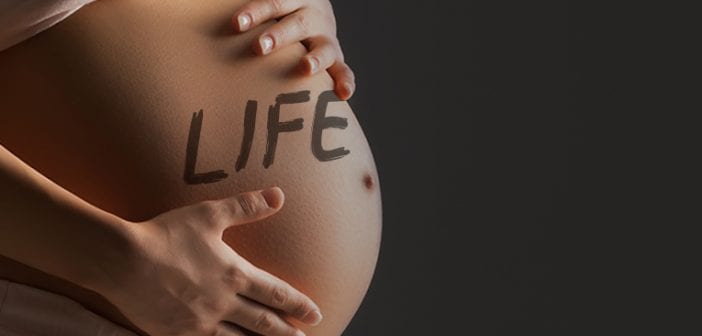In a recent study, researchers from the University of California claim that abortion waiting periods have little to no effect on mothers’ decisions to have abortions. Contrary the short-sighted results of a study with an anti-Life bias, many mothers testify that abortion waiting periods are the difference between Life and death. One Texas woman says, “Because I had to wait, my daughter is alive today.”
The study, entitled “Measuring decisional certainty among women seeking abortion,” examined the level of certainty of women seeking elective abortions in Utah. State law in Utah requires a 72-hour waiting period from the time women initially seek an abortion before the abortionist can end the baby’s Life. Since over the course of the short study most women did not change their mind, the study authors claim waiting periods are “unnecessary.” Sadly, this study is not the only anti-Life public policy position masquerading as science. There is certainly reason to question whether researchers should be demanding public policy changes by claiming laws are unnecessary.
The much more important question has to do with the lifetime consequences of an abortion decision. This most recent study attempts to suggest that the lack of change among many women is an obvious indication that women won’t regret anything. Studies by other anti-Life researchers claim absurdly that “hardly any women regret having an abortion” based on a mere three year survey. Yet groups like Silent No More have compiled countless stories of women and men who deeply regret their abortion decisions. The simple fact is that regret cannot be gauged over a 72-hour waiting period or a three-year span; a lifetime of perspective and experience may radically change a person’s perspective. Some women testify that only they only realized after having other children what they had lost to abortion: a unique, irreplaceable, and unrepeatable son or daughter.
The anti-Life study also downplays why women do change their minds. A factor in many women’s choosing not to follow through with an abortion decision is changing circumstances. If a woman feels she cannot provide for another child and seeks an elective abortion, what would happen if she found a life-affirming pregnancy resource center fully equipped to address her needs? A mother with any doubt about her abortion decision would be able to welcome her child without fear. Pregnancy resource centers across the country offer many examples of this fact.
Although only some women change their minds during legally required waiting periods, each one of those changed decisions represents the Life of a child who would otherwise not be with us. Surely, a decision that has such a lasting and profound effect on mothers, fathers, siblings, grandparents, and society should be treated differently than elective medical procedures, as the study authors suggest.
In Texas, Rikka says, “If it were not for the laws in Texas, my daughter would not be alive today.” Contrary to the biased “research” of anti-Life pundits, Rikka knows from difficult experience that an abortion decision stays with you for the rest of your life. She strongly supports laws like the 2011 Sonogram Law, which requires abortionists to show women their preborn child before choosing an elective abortion. Rikka says, “If I had seen my baby, I would not have chosen abortion.” With informed consent laws like this in Texas, Rikka says women have to face the abortion decision “dead-on.” She is certain that if a woman does not have to fully recognize what she is choosing, “it will come back later on in life to haunt her.” Because of waiting periods, mothers who want to choose Life may have a chance.
The question we should ask ourselves in light of the anti-Life attack on abortion waiting periods is: If you have the opportunity to save a Life, why wouldn’t you?

